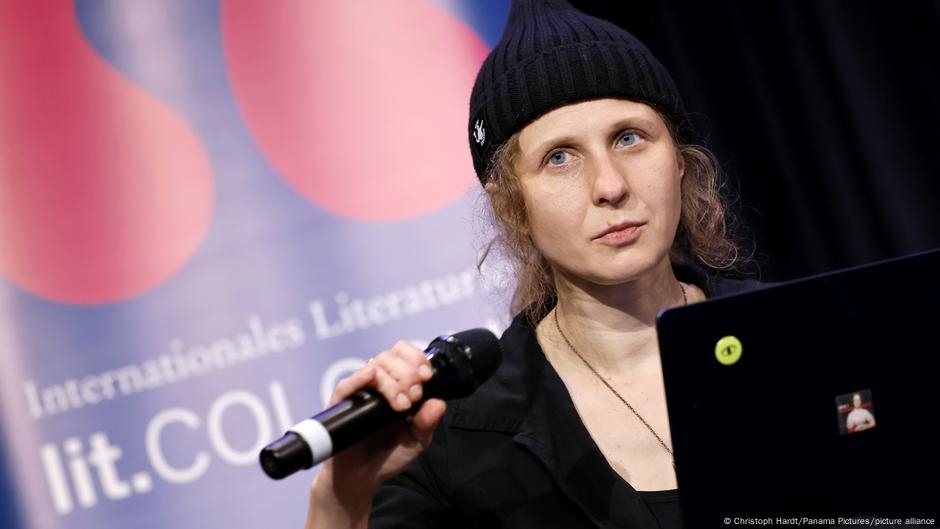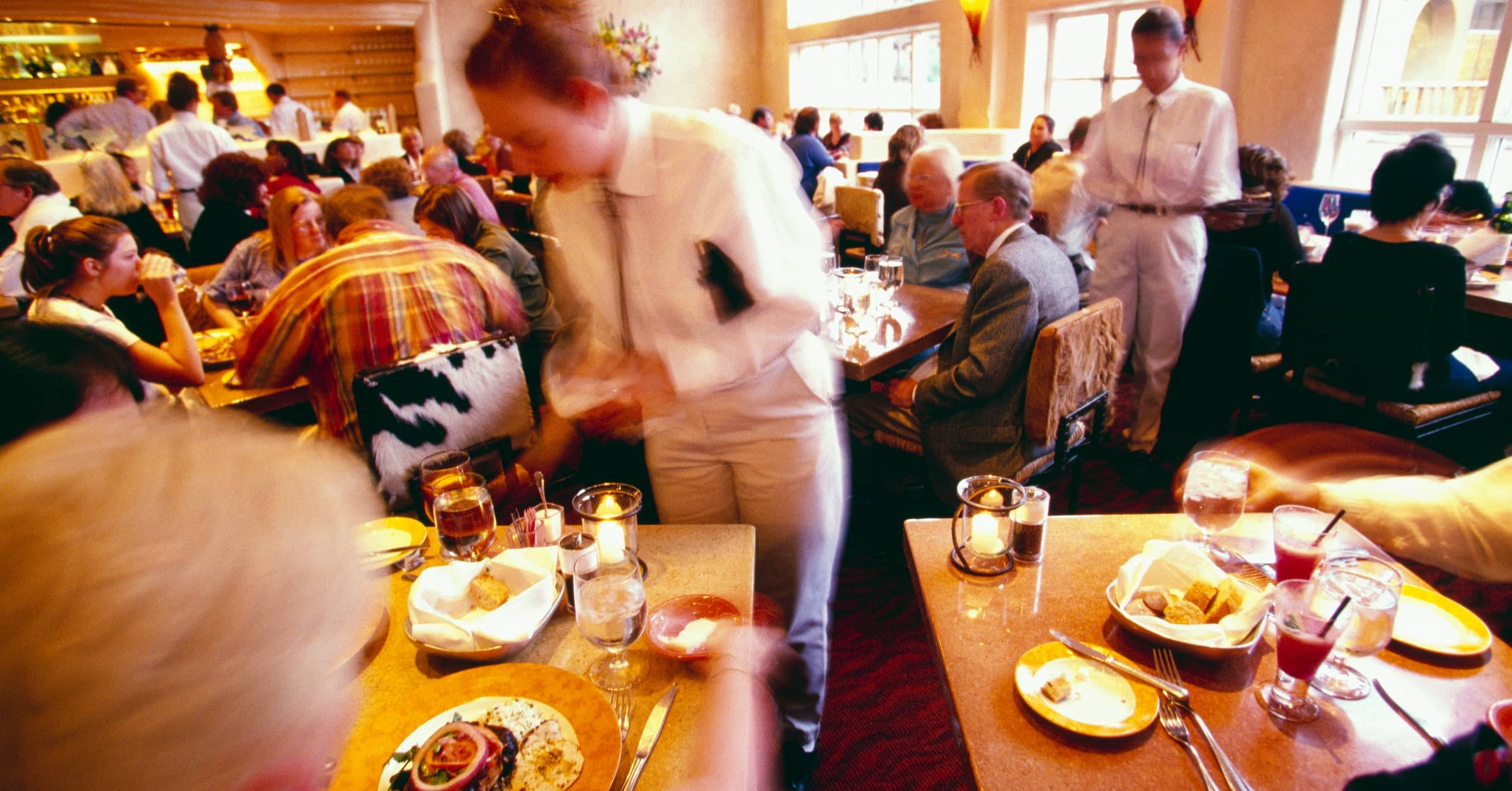Maria Alyokhina of Pussy Riot speaks out

The book "Political Girl" by Pussy Riot singer Maria Alyokhina describes her resistance against the Putin regime, which culminated in her spectacular escape in 2022 - and her fight for a free Russia.

She sits on stage dressed in black, puffing on an e-cigarette, her blonde curls spilling out from under a thick knitted hat: The indomitable punk lady Maria Alyokhina , 37, political activist and performance artist, presents her book "Political Girl. Life and Destiny in Putin's Russia" in Cologne.
Maria Alyokhina is one of the women who, in February 2012, on the eve of Vladimir Putin's re-election to the presidency, which continues to this day, danced in colorful dresses and face masks in front of the altar of the Cathedral of Christ the Savior in Moscow and, with a "punk prayer," implored the Virgin Mary to drive Putin away. The world applauded Pussy Riot .

The Virgin Mary did not answer the prayer, however: Putin is still there. The autocrat, initially moderate, now rules like a dictator . Maria Alyokhina had to leave Russia , like tens of thousands of other young Russians, including numerous artists. Today, Alyokhina holds an Icelandic passport and leads a nomadic life in the West.
Sonia Mikich, long-time Russia correspondent for ARD and moderator of the book presentation in Cologne, welcomes Maria - "Masha" - Alyokhina as an emissary of another Russia - that "radical, absurd, artistic, free country that we loved so much" and that today only lives on outside of Putin's empire.

Together with her colleague Olga Borisova, Maria Alyokhina has compiled the events of the period from December 2013 to April 2022 in a 500-page document. "From the moment I left the penal colony until the moment I had to leave Russia, absolutely against my will," Alyokhina specifies.

Looking back, the nearly two years of imprisonment that Maria Alyokhina and other Pussy Riot members served in a penal colony after their action at the Cathedral of Christ the Saviour seem almost luxurious to her compared to today's situation: "We were constantly accompanied by international attention, we received thousands of letters of support, and above all, there was no brutal, murderous war." The numerous political prisoners of today are in a much worse situation.
Eight years of fighting in RussiaAt the end of 2013, Alyokhina was released early from prison and returned home, accompanied by throngs of journalists. However, in the following years, state violence steadily increased – especially against its own population. It culminated in the attack on Ukraine and the murder of Alexei Navalny .
Until early 2022, Alyokhina fought – it had been eight eventful years. She participated in anti-government protests, was repeatedly confronted with state violence, and was repeatedly imprisoned or placed under house arrest. Finally, she freed herself from her electronic ankle monitor and fled to the West in a daring escape route via Belarus and Lithuania – wearing the uniform of a Moscow food delivery service, with her essentials packed in a thermal box on her back.
Maria Alyokhina has just been sentenced in absentia to 13 years in prison (for allegedly defaming the Russian armed forces in the anti-war video clip "Mommy, Don't Believe the TV"). "To 13 years and 15 days," Alyokhina clarifies in an interview with DW, not without pride. "That means they haven't forgotten me." This draconian sentence alone, however, reveals the scale of the repression in Russia.

The book "Political Girl" consists of numerous episodes. They recount courageous and sometimes humorous actions—such as replacing the red flags on five government buildings in Moscow with rainbow flags in protest against the oppression of the LGBTQ community in Russia . We accompany Alyokhina on wild journeys across the country, witness arrests and attacks by right-wing thugs, but also get to know her in very personal chapters where she talks about her relationship with her son Philipp: at 18, he is now the same age his mother was when she gave birth to him.
The stories paint a multidimensional picture of Russia – a morbid, sometimes brutal, but not hopeless country. Because, as Alyokhina explains, there are still courageous, warm-hearted people – she met them everywhere.
Weapons for UkraineMaria Alyokhina has strong words for the current political situation in Europe: "There are these far-left voices in Germany that, in my view, are simply a hypocritical horror," she said in an interview with DW on the sidelines of her reading in Cologne. "Because when you demand that Ukraine relinquish the occupied territories and sign so-called peace agreements, anyone who fought against the Putin regime in Russia understands: They ( the Russians ) can sign anything and still screw you over afterwards."

Alyokhina is "definitely in favor of arms deliveries to Ukraine." To speak of a "weapon-free peace" now, in the fourth year of the war, while hundreds of thousands of Ukrainians have sacrificed their lives for the existence of their country, is simply "stupid and cowardly," says the activist.
Alyokhina: "Resistance is always possible"Alongside Kremlin critics like Galina Starovoitova, Anna Politkovskaya , and Alexei Navalny, Maria Alyokhina herself is an example that resistance is always possible. "We don't choose the country we are born in, but we choose how we want to live our lives," Alyokhina said at her reading in Cologne. She showed the German audience the terrible Russia: where young girls are imprisoned for a punk prank, a famous opposition figure is murdered, and doctors, journalists, and poets are put on trial for "fake news" about the war in Ukraine.
Is she afraid? Maria replies: "Right now I'm kind of ashamed to be afraid."
dw





